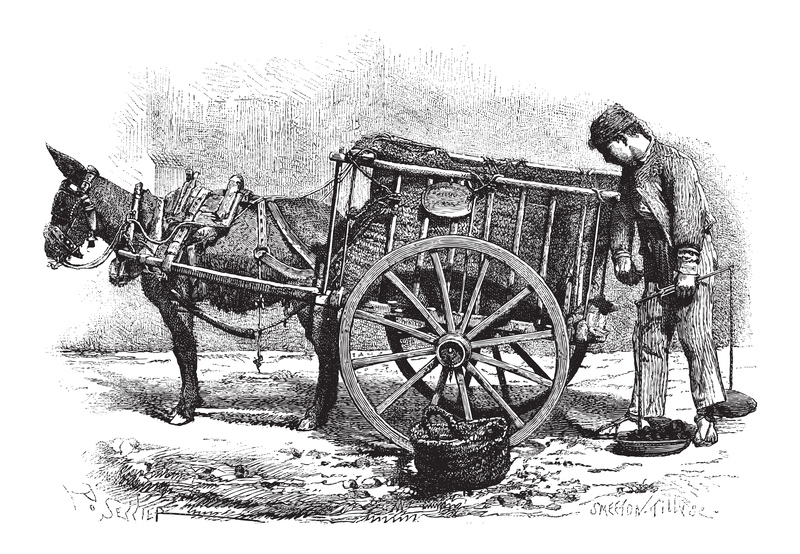
Understanding Eco-Friendly Food Waste Recycling for Cafes
In today's environmentally-conscious society, eco-friendly food waste recycling for cafes has become an essential practice. As cafes contribute significantly to food waste, adopting sustainable recycling methods can greatly mitigate the negative impact on our planet. This article will explore various strategies and benefits of recycling food waste in cafes, ensuring you adopt eco-friendly practices that attract more environmentally-aware patrons.
The Importance of Food Waste Recycling
The food service industry generates a substantial amount of waste, with cafes being major contributors. Around the world, food waste has become an environmental concern, as it leads to greenhouse gas emissions when decomposed in landfills. By recycling food waste, cafes can reduce their ecological footprint while setting an example for customers and the local community.
- Environmental Benefits: Recycling helps divert waste from landfills, reducing methane emissions and other pollutants.
- Economic Advantages: By managing waste effectively, cafes can reduce disposal costs, and potentially profit from selling compost or biogas.
- Community Impact: Sustainable practices appeal to environmentally-conscious consumers, enhancing a cafe's reputation and customer loyalty.
Implementing Food Waste Recycling Strategies in Cafes
Implementing effective food waste recycling methods requires careful planning and execution. Here are key strategies cafes can employ:
Create a Food Waste Audit
To recycle food waste efficiently, it is crucial to understand what types and quantities of waste your cafe produces. Conducting a food waste audit involves:
- Identifying the most common types of food waste generated daily.
- Measuring the volume and weight of waste to pinpoint major contributors.
- Analyzing the data to develop strategies for reduction and recycling.
Choose a Suitable Recycling Method
Once you understand your food waste profile, select an appropriate eco-friendly food waste recycling method:
- Composting: Convert organic waste into nutrient-rich soil. This can be done onsite or through a local composting service.
- Anaerobic Digesters: Use these systems to break down organic waste, producing biogas and fertilizers.
- Donation: Partner with local charities to donate unsellable but consumable food items.
Train Staff and Involve Customers
Raising awareness among staff and customers is crucial for successful implementation:
- Provide training sessions for staff on proper waste segregation techniques.
- Engage customers with informative signage and encourage them to participate in recycling programs.
- Incentivize participation by highlighting sustainability efforts across social media platforms.
Leverage Technology
Utilizing technology in food waste recycling can streamline processes and increase efficiency:
- Waste Management Apps: Track waste amounts and identify trends to optimize reduction efforts.
- Smart Bins: Implement bins that automatically sort waste and provide data analytics on usage patterns.
- Digital Platforms: Connect with recycling facilities and charities through online platforms to ensure rapid and effective waste collection.
The Benefits of Going Eco-Friendly
Adopting eco-friendly practices in food waste management brings numerous advantages:
- Environmental Responsibility: Demonstrates your commitment to sustainability and inspires others to follow suit.
- Cost Savings: Lower waste disposal costs and create potential revenue streams from the sale of compost or biogas.
- Brand Enhancement: Eco-conscious customers are more likely to patronize cafes with visible sustainability initiatives.
Challenges and Solutions
While pursuing eco-friendly food waste recycling offers many benefits, cafes may encounter challenges:
- Initial Costs: Implementing new systems can be costly, but financial aid through grants and partnerships can offset expenses.
- Logistical Hurdles: Finding suitable recycling services can be a challenge; however, collaborating with local organizations can provide solutions.
- Behavioral Changes: Shifting attitudes towards sustainable practices requires time and effort but can be facilitated through education and incentives.

Conclusion: Building a Greener Future
Eco-friendly food waste recycling for cafes is not just a trend; it is a necessary step toward a more sustainable future. By implementing effective waste management practices, educating staff and customers, and leveraging technology, cafes can significantly reduce their environmental impact. Moreover, by embracing these strategies, cafes not only contribute to a healthier planet but also gain a competitive advantage in the increasingly eco-conscious marketplace. Act now, and make a positive impact on the environment and your community.
Join the movement for sustainability and inspire others by adopting eco-friendly food waste recycling methods in your cafe today!